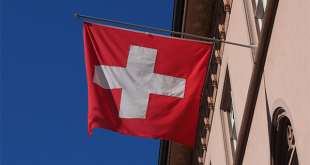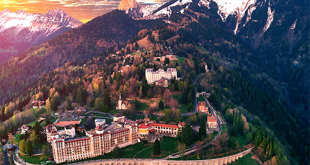Switzerland is a cultural meeting point at the heart of Europe for a lot of people from different ethnicity and religious beliefs. Everyone can find a civilized way to live through. Its creative and cultural contribution reflects the variation of this global multicultural and language environment includes. However, it’s better for international students to learn about the main Customs and Traditions in Switzerland in order to make their integration easier.
Table of Contents
What is Switzerland famous for?
The creative minds, knowledge, and continuous research are the main and most precious resources in the country. With the high-quality concentration on international education, the Swiss people won more than 100 Nobel Prizes.
This is in addition to including most of the headquarters of the global European companies, thanks to the work environment that is favorable to the investors.
As far as the standard of living in Switzerland is mentioned, it is very high. There is a huge gap between the cities and the countryside, regarding lifestyle. Geneva is the biggest city, according to Swiss standards. However, the rhythm of life in Geneva is kind of slower than in the big cities of Europe. This is due to the fact that the Swiss people prefer living peacefully and quietly.
In general, the Swiss states are stable. Employees’ salaries are very high, compared to other European countries. The Swiss education system is based on offering equal opportunities to everybody, regardless the ethnicity and beliefs. All schools have a unified education system.
This allows all the students to reach the same cultural and educational level.
Family Culture, Customs, and Traditions in Switzerland
- Respecting the privacy and appreciation are the main values in the social interaction of the Swiss society.
- In public places, such as trains, strangers do not speak to each other, however, they expect kindness in the social interaction.
- In the small shops, customers and salespersons thank each other several times.
- They have some cultural differences between the areas, in terms of the frequent usage of titles and professions in the German-speaking area. Also in the French-speaking area, they use kissing instead of shaking hands.
- Regarding the religious beliefs, Catholicism and Protestantism are the main forms of Christianity in Switzerland. The Islamic community represents 5%, the biggest religious minority. Although the Swiss constitution calls for the separation between the church and state, churches still depend on the state. There are many regions or cantons in Switzerland. Priests earn salaries as government employees.
Working Hours in Switzerland
Banks
Work in banks starts from Monday to Friday. The offices open their doors from 8:00 am to 12:00 pm, and from 2:00 pm to 5:00 pm. They start receiving the auditors from 8:30 am to 4:30 pm, with a two-hour break at noon.
They have a day during the week, where they extend the working hours, as appropriate for the auditors. The bank administration determines the extension day and number of hours separately. The weekend is on Saturday and Sunday, in addition to the official vacations that are determined by the government. Many banks have ATMs that accept offshore credit cards.
Post Offices
Generally, the post offices open from 8:00 am to 12:00 pm, and from 2:00 pm to 5:00 pm during the weekdays. There are some branches in the shopping malls. The weekend is on Sunday only, in addition to the official vacations.
Swiss customs and traditions: General Pieces of Advice
- The Swiss people prefer the official salute. At the first meeting, you should shake hands. For friends, hello is enough. Women greet each other with three light kisses on cheeks, starting from the right. Kids greet by shaking hands or a light hug.
- In the stores and shops, you should greet the workers when entering and exiting.
- The Swiss people do not stand in lines in the crowd, transportation rush, or shopping malls.
- Swiss people tend to keep their personal stuff to themselves. They love silence and do not speak about their life stories. Moreover, They also do not like asking questions about the family and job in the first meetings. They take a longer time than others in making friends and forming personal relations.
- Being late for appointments, regardless of what they are, is considered rudeness and disrespect. Arriving before time, in work, shows that this person is professional, organized, and deserves recognition and respect.
- Swiss people love to help strangers, but they usually wait until they are asked to do so.
- Many Swiss live in apartments, where they share washers and dryers. There are certain days for each apartment to use them. Also, you have to leave everything clean when you leave.
- The Swiss have strict habits regarding the cleanliness. They do not use shopping bags for garbage; there are bags specially made for this. There are strict rules for recycling.
- Switzerland has a unique education system. Kindergarten starts at the age of four. After finishing the 9th grade, students can take tests to enter certain schools that allow them to join the university at an early age. Many Swiss kids go through phases that include education and vocational training. So, it is not strange to find young employees and professionals, as they receive appropriate training at a young age and for years before allowing them to work.
- The favorite dish for the Swiss is the cheese fondue.
After learning the Customs and Traditions in Switzerland, learn also the best Universities in Switzerland.




 Aljawaz Your guide to study abroad
Aljawaz Your guide to study abroad















